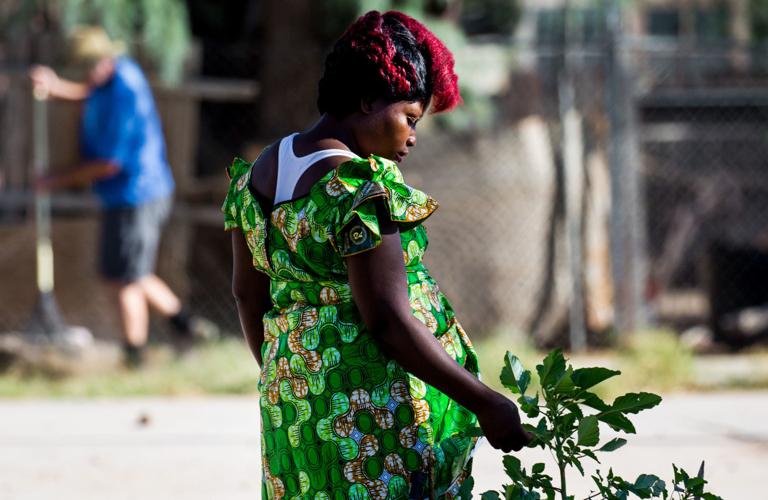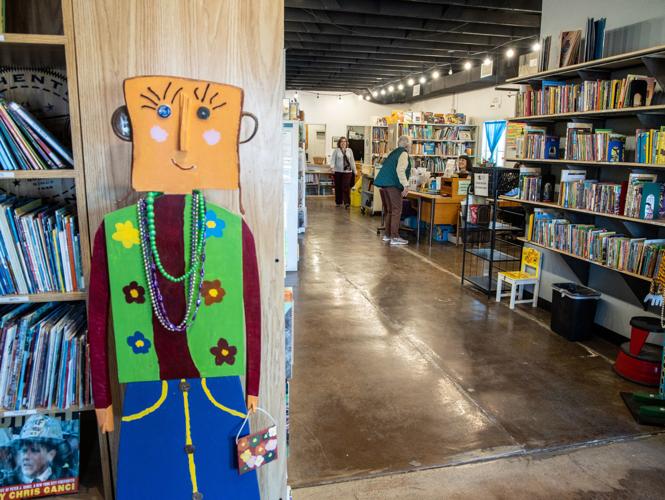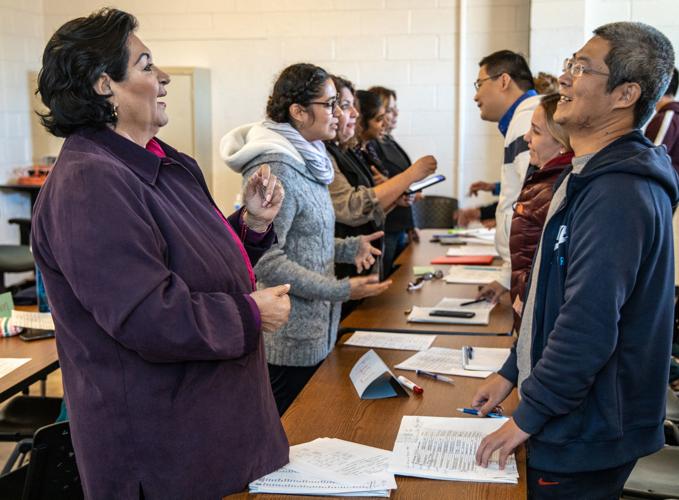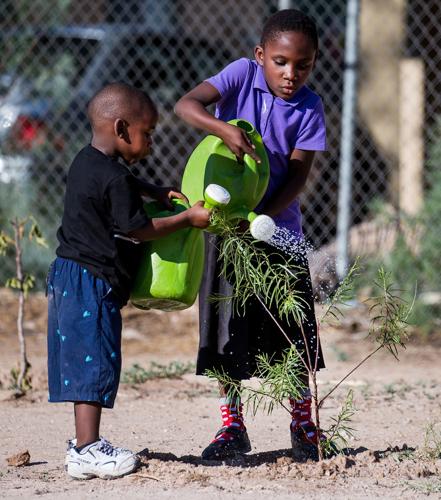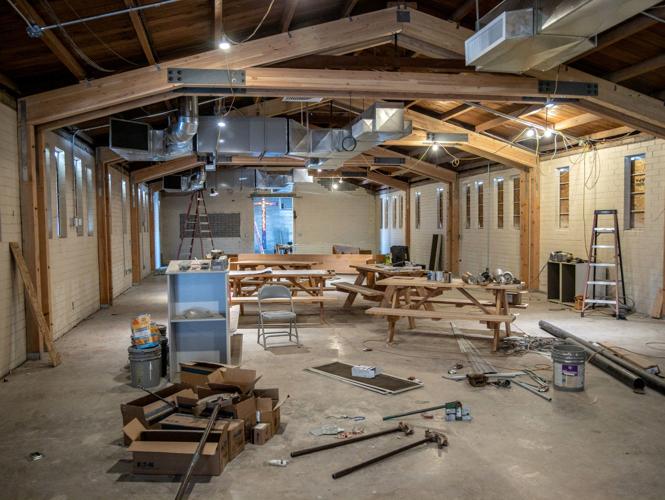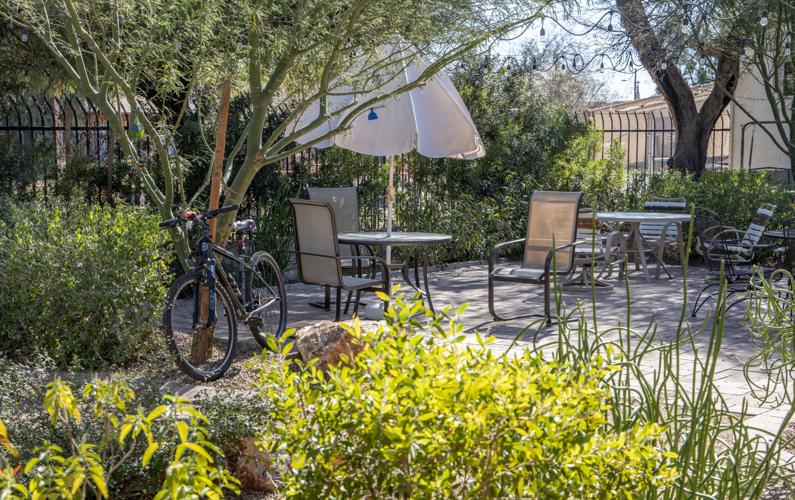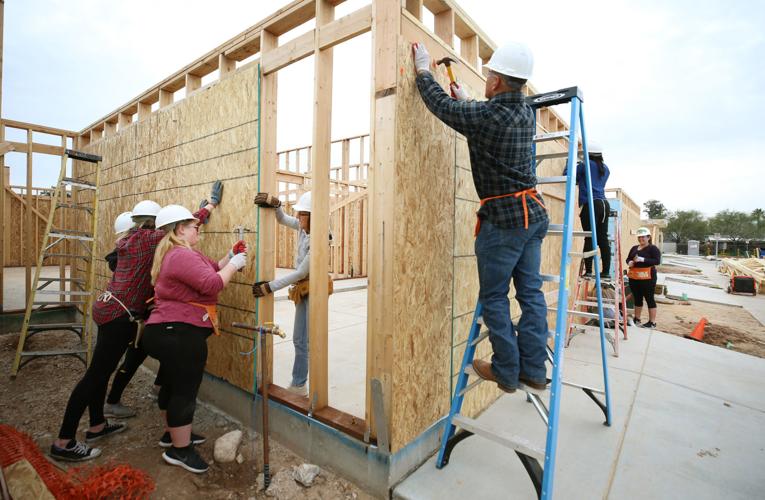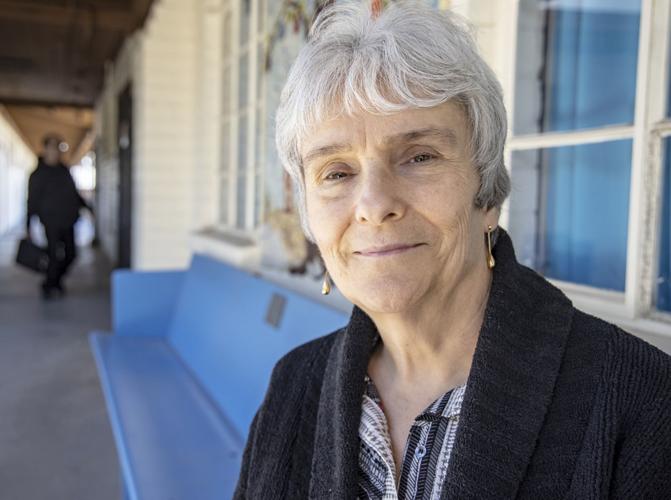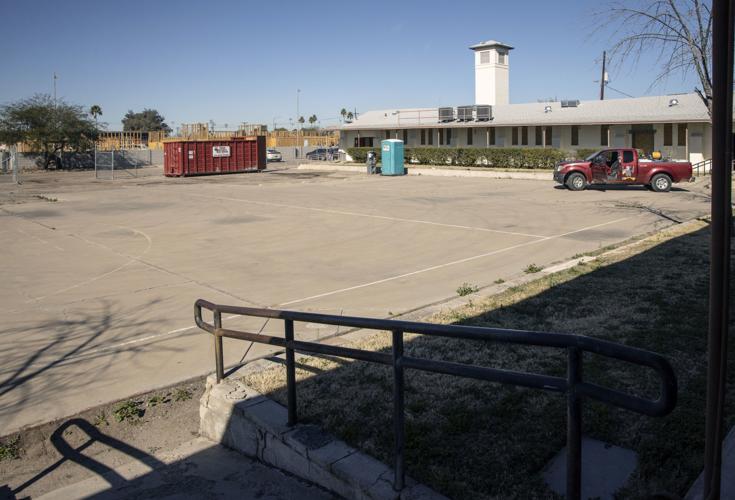Literacy Connects is well-known around Tucson for its reading programs and tutoring services for children and adults.
But after finding a home in a vacant church and school, the nonprofit organization expanded its reach, helping to elevate one of Tucson’s poorest, most transitory neighborhoods.
"It's an example of synergy," says Tucson City Council member Paul Durham. Literacy Connects, 200 E. Yavapai Road, east of North Stone Avenue between Prince and Fort Lowell roads, is near the center of the Amphi Neighborhood in Durham’s midtown Ward 3.
Literacy Connects’ efforts to elevate the neighborhood coincide with those of Habitat for Humanity Tucson, the International Rescue Committee Tucson and the Amphi Coalition, he said.
More than 80 percent of the housing in the area surrounding Literacy Connects is rental units, and the vacancy rate is as high as 15-20 percent, notes the Habitat for Humanity Tucson Amphi Focus Neighborhood Profile. There is a lack of permanent housing and most residents — 53 percent — rent in small apartment buildings.
That low percentage of owner-occupied housing means limited pride of ownership and a flow of renters in and out of the units.
The neighborhood has a large immigrant and refugee population and a large youth population, with more than 60 percent of residents being under 18, the Habitat report said.
"Literacy Connects knew the demographic of the area and the high need for its programs," says Nancy McClure, first vice president of commercial real estate firm CBRE.
Finding a home

A smiling figure greets guests in the library at the Literacy Connects offices at 200 E. Yavapai Road. The room was once the gym of the former Redeemer Lutheran Church and School.
When five nonprofit organizations merged in 2011 to form Literacy Connects, administration and programs were split among cramped space on East Speedway and the nonprofits’ original, often-stuffed-wall-to-wall offices scattered around Tucson. That made collaboration and coordination difficult, says Betty Stauffer, executive director of Literacy Connects.
Coupled with rising rents, a single place to advocate for literacy and offer services was a necessity.
The former site of Redeemer Lutheran Church and School and later the Turning Point School, a private school that closed in 2009, was the right size to gather the programs into one central spot and it had plenty of parking for volunteers, says McClure. The 14,921-square-foot school and church complex was built in 1975 and sat on about 5 acres.
A northern California homebuilder had purchased the property, hoping to turn the space into housing. A tentative plat had been approved for 34 single-family detached homes. But the economy tanked and the building and property sat empty.
A caretaker living on site kept an eye on the property.
"The neighborhood really treated it (the building) kindly and it was in great shape when Literacy Connects decided to tour it," says McClure.
Literacy Connects purchased the property for about $375,000, Stauffer said.
Property comes to life

The outdoor courtyard offers a restful place to read at Literacy Connects, which along with Habitat for Humanity is helping to reshape a poor neighborhood in midtown Tucson.
Now, the building is buzzing with activity.
A cheerful Little Free Library greets visitors to Literacy Connects and encourages neighbors to "Take A Book."
Volunteers search tall shelves packed with books in a former gym to make a selection that will pique a child’s interest.
More volunteers, students and staff fill offices and classrooms, promoting reading programs, practicing English and learning new skills.
The building is being shaped into "a space you want to be," says Sally Lanyon, Literacy Connects' chair-elect. It is continuing to get more appealing.
There's a landscaped courtyard and refurbished areas like the bathrooms and the beams in the former sanctuary.

The former sanctuary of Redeemer Lutheran Church is being remodeled into a space for Stories that Soar!, a program that turns the words of schoolchildren into plays.
The former sanctuary is being renovated and a grand opening dedication is tentatively planned for April 18, says Stauffer. Stories That Soar, a program that turns stories by elementary-age kids into plays, will move into the space over the summer — completing the goal of housing all of Literacy Connects’ programs under one roof.
The space will open a technology and creative arts after-school program aimed at middle school students in August, says Stauffer.
Building community
Walk out the west-facing front door of Literacy Connects and nine houses under construction are immediately in view.
The campus came with more land than Literacy Connects needed and it sold a piece on the west end to Habitat for Humanity Tucson. A donor paid for the property, 132 E. Yavapai Road, and donated it to Habitat — a win for both nonprofits, says Laura Sanchez, Habitat Tucson spokesperson.

Staff and volunteers with Habitat for Humanity build homes on land just west of Literary Connects, 132 E. Yavapai Road, on Feb. 9, 2019, in Tucson, Ariz. Nine two-story homes are slated for completion in October.
There are nine homes under construction, Sanchez says. The homes will be 1,300 to 1,500 square feet and have three to four bedrooms and garages.
The development, Minton Court, is named after Habitat volunteer Bob Minton, who died in 2014. He served on the Habitat Tucson board for 15 years as member, treasurer and president.
The area surrounding the Literacy Connects campus is a Habitat Tucson focus neighborhood, a revitalization effort that began in early 2018, says Sanchez.
In addition to building homes, Habitat has been spiffing up the neighborhood by pulling weeds to clear sidewalks. Habitat can also do some home rehab and repair in this revitalization program area.
Growing community

Siblings Irene Irantwengejje, 6, right, and Erick Inteyiteka water a tree in the Literacy Garden, where refugees and volunteers grow food and socialize.
On the east side of the Literacy Connects campus, gardens bloom and conversations in various languages waft from a former playground where 25 refugee family gardeners and four urban farmers are sowing their culture and their future.
A partnership with International Rescue Committee began in 2017 when Literacy Connects invited IRC clients, immigrants and refugees from Rwanda, Burundi, Zambia and other nations to garden in the former playground.
Habitat for Humanity Tucson worked with Lowe’s to build shade structures by the gardens and Habitat’s AmeriCorps volunteers dug the garden plots, installed irrigation and built a shed, says Sanchez.
The Literacy Garden helps refugees connect with their culture and grow veggies with which they are familiar and may not be readily available in Tucson stores, says Katrina Martinez, IRC nutrition and food security program supervisor.
The gardens also help refugees stretch their budget with fresh food and foster social interaction, Martinez says. The mostly women gardeners see the garden as a safe space.
The urban farmers on the site can sell their crops at the Abundant Farmers Cooperative, a network of small farmers, at the Community Food Bank of Southern Arizona farmers markets, says Martinez. The group hopes to eventually gather urban farmers from across Tucson to the Literacy Garden for a farmers market.

Students Emerita Gutierrez, left, and Liming Zhang practice their English during a class at Literacy Connects. Gutierrez came here two years ago from Mexico. Zhang, from China, has lived in Tucson for 10 years.
The garden, which will celebrate its first anniversary April 19, also encourages neighborhood families to continue to watch out for the property and have some vested "ownership" in its security and, in-turn, use Literacy Connects’ reading and English-as-a-second-language programs to elevate their skills, says McClure.
"It is heartwarming to see a dirt lot becoming a place that sustains life," says Lanyon.
Part of a whole
Literacy Connects is a partner and anchor in the Amphi Coalition, says Durham. The Coalition, which includes the Amphi Neighborhood Association, IRC, businesses, Tucson Police Department, Sacred Heart Church, the Woods Public Library and other organizations seeking to bolster the area, meets at Literacy Connects.
The coalition promotes a sense of place and neighborhood and favorable interaction with police with events like Santa in Amphi, says Durham.
It’s too soon from a scientific perspective to quantify the impact of Literacy Connects or changes in the neighborhood — the aggregate data is not available.
However, anecdotal evidence indicates that Literacy Connects is woven into the fabric of the neighborhood, says Lanyon.
"(Literacy Connects) has integrated in nicely and has become an attribute for the area and the community as a whole," she says.
A version of this story was published in the Arizona Daily Star March 3.


